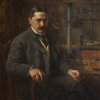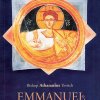His short films have played worldwide. His short film Shades of Gray was distributed by Doug Liman’s Hypnotic Releasing, and his commercial spot Magic was a Coca-Cola Refreshing Filmmaker’s Award selection. He co-produced two low-budget features: Across Dot Avenue and Romeo and Juliet in Yiddish. The latter was invited for a week-long run at New York’s famous Lincoln Center and opened to rave reviews. He has taught various film classes at the University of Hartford, The New School, Art Institute of Austin, Ramapo College and was the chair of the Film Department at Katharine Gibbs School. He often collaborates with his brother Nemanja. Their latest collaboration, a feature film “Love Hunter” premiered at the prestigious Warsaw Film Festival and was “among its highlights”, according to The Hollywood Reporter.
.It opened in New York on November 14, 2014 and was among New York Times Critics’ Pick of the week. New York Times called it "at once fantastical and gritty… one of the most refreshing New York independent films." It was invited to screen at the prestigious Gene Siskel Film Center in Chicago. Kino Lorber, esteemed distribution company added the film to its catalogue.





